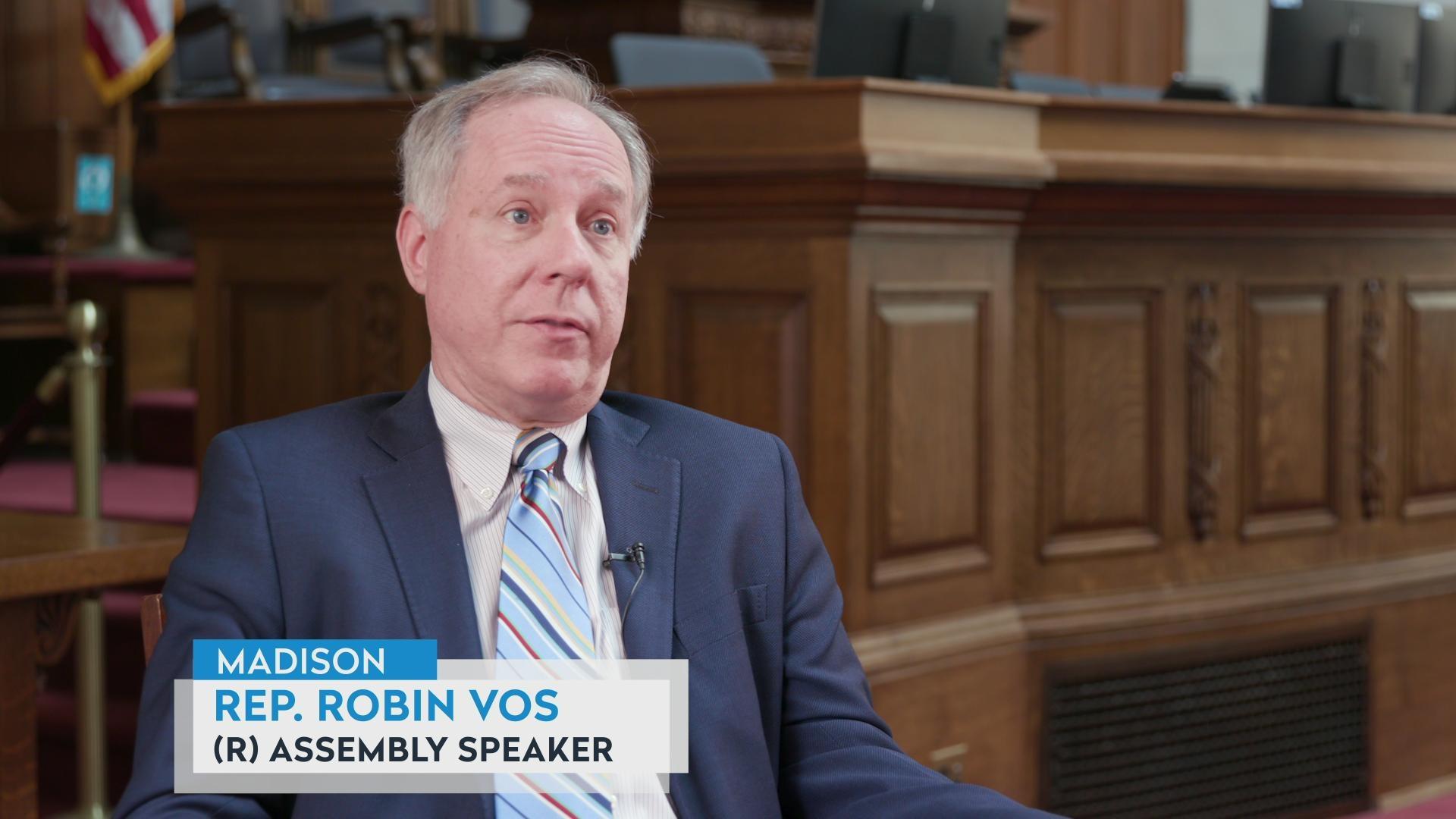Frederica Freyberg:
To date, there’s only one democrat who has officially announced they will challenge Scott Walker for the job of Wisconsin governor. Mary Burke is a former Trek Bicycle executive with a MBA from Harvard. She is also a member of the Madison School Board. Burke declined our recent Here and Now request to be interviewed for this program, but we still wanted you to be able to compare the two gubernatorial candidates. We have an abbreviated version of an interview I did with Mary Burke in November where I talked with her about hot button issues like the republicans' controversial Act 10.
Mary Burke:
I think our public sector employees do have the right to collectively bargain, but that doesn’t stand in the way of making sure we have effective, efficient and accountable public sector in state government. So I would make sure that we were attracting and retaining the type of employees that we need to have to make sure we’re moving forward as a state.
Frederica Freyberg:
Would you work to overturn it?
Mary Burke:
Well, I would work to restore collective bargaining.
Frederica Freyberg:
On education, presumably this is also a priority of yours, given that you are on the Madison School Board and familiar with the issues around K-12. What would you say is the number one thing Wisconsin needs to do to make sure that its schools maintain their high quality?
Mary Burke:
Well, I think we have to make sure that they are not only maintaining quality. We actually have to improve the quality. You know, there were recent reports out that showed some of our reading scores are among the lowest in the country. And we have to make sure that we’re focused on quality and affordable education, whether it’s our K-12, our technical college or our university system. We’ve seen dramatic cuts to these. And the other thing that I really worry about is this move towards the voucher system, which has now been expanded statewide. It has not proven to be effective in terms of improving student learning. And to expand it without that research I think is a bad move, especially in light that it pulls resources from our local neighborhood schools.
Frederica Freyberg:
So you think that school funding should be increased?
Mary Burke:
Well, I think first and foremost we should use what funds we have effectively, but then we need to look at where we do need to make additional investments to address the challenges that we’re facing in the schools.
Frederica Freyberg:
One thing that was interesting to us was that you were the lone No vote on the Madison School Board in approving its latest budget. Why did you vote no on that?
Mary Burke:
Well, that budget had a $16 million increase in spending over the last two years, and I didn’t think that we had done enough in terms of looking at how we could be fiscally responsible to the taxpayers. It came with a 3.5% increase in the tax levy. This is at a time when wages in Dane County are actually stagnant. So when we’re asking taxpayers to dig deep into their own household budgets to cover the increase in the schools, I think first and foremost, we have an obligation to make sure we look within our own operations to see if we could be negotiating tougher with vendors, whether we could be holding off on out-of-state travel. I mean, these are things that don’t affect learning in the classroom. And I think we have to make sure that we are balancing our budgets and we’re doing it in a way that is responsible to the– to what our taxpayers can afford.
Frederica Freyberg:
You spoke earlier in our interview about the BadgerCare program and how it, under Governor Walker as part of his entitlement reform, he kind of moved people only in the 100% of poverty and lower onto Medicaid and then is moving the others off into the marketplace. Would you expand BadgerCare and those kinds of Medicaid programs in Wisconsin as former governor Jim Doyle did or would you maintain this kind of level where we have it now?
Mary Burke:
Well, we turned down hundreds of millions of dollars when we– when we decided to throw 77,000 people off of BadgerCare. This was coverage that was going to be paid for by the federal government. And I believe that as governor we have to fight hard to make sure that the taxes that Wisconsin pays into the federal government. These are the taxes that Wisconsin residents are paying. We should be fighting to get as much of that back into Wisconsin to fuel our economy as we possibly can. So this isn’t only about having affordable healthcare coverage for people in the state. It’s also about making sure that we are getting our fair share of Wisconsin taxpayers’ money coming back into the state.
Frederica Freyberg:
Mary Burke, we leave it there. Thanks very much.
Mary Burke:
Well, thanks for having me.
Search Episodes
News Stories from PBS Wisconsin

Donate to sign up. Activate and sign in to Passport. It's that easy to help PBS Wisconsin serve your community through media that educates, inspires, and entertains.
Make your membership gift today
Only for new users: Activate Passport using your code or email address
Already a member?
Look up my account
Need some help? Go to FAQ or visit PBS Passport Help
Need help accessing PBS Wisconsin anywhere?

Online Access | Platform & Device Access | Cable or Satellite Access | Over-The-Air Access
Visit Access Guide
Need help accessing PBS Wisconsin anywhere?

Visit Our
Live TV Access Guide
Online AccessPlatform & Device Access
Cable or Satellite Access
Over-The-Air Access
Visit Access Guide
 Passport
Passport


















Follow Us